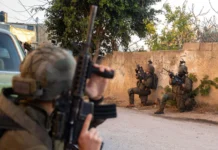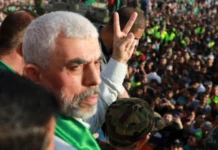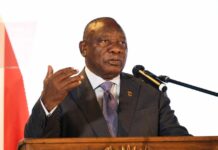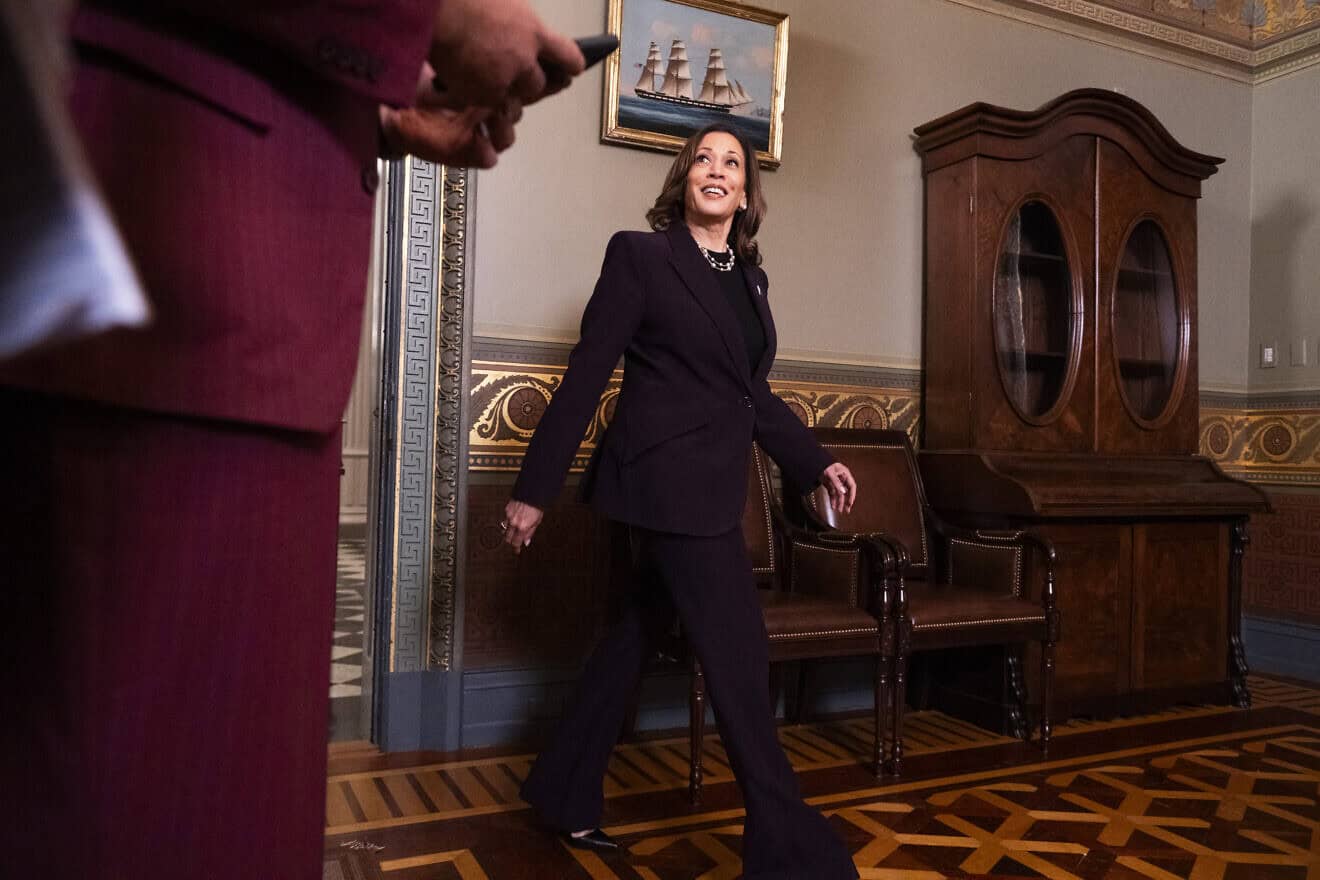U.S. Vice President Kamala Harris sent strong signals to Israeli Prime Minister Benjamin Netanyahu this week on what to expect from a relationship should she succeed U.S. President Joe Biden in the Oval Office.
Netanyahu touched down in the United States on Monday with little fanfare. Neither Biden nor Harris, not even U.S. Secretary of State Antony Blinken—America’s top diplomat—came to greet him upon his arrival at Andrews Air Force Base, unlike the overwhelming welcome that Biden received twice when he came to Israel for diplomatic reasons in July 2022 and October 2023.
For the first time in her term as vice president, Harris opted not to preside over the joint session on July 24 when Netanyahu addressed Congress, claiming to have a pre-planned campaign stop that would keep her out of town.
Meanwhile, several other Democratic lawmakers intentionally boycotted the address.
Harris did have a one-on-one sit-down with the prime minister on Thursday shortly after his afternoon meeting with Biden. It was an opportunity for Harris to interact with one of the most experienced and consequential leaders of the free world with the rest of the planet watching, including American voters.
Neither Harris nor Netanyahu made comments at a pre-meeting photo opportunity. Shortly after the meeting, and after Netanyahu had already left the White House, Harris addressed the media with a prepared statement.
She called her meeting with Netanyahu “frank and constructive.”
In a press statement following her meeting with Netanyahu, Harris said “we cannot look away in the face of these tragedies” in Gaza … “we cannot look away from the suffering.”
And she insisted, “I will not be silent.”
It was her first major diplomatic meeting since Biden announced his intention not to seek re-election and threw his support for the democratic nomination to his deputy.
She established that as current vice president and former California senator, she has had “an unwavering commitment to the existence of the State of Israel, to its security and to the people of Israel,” and pledged that the US “will always ensure that Israel is able to defend itself, including from Iran and Iran backed militias such as Hamas and Hezbollah.”
She also stated that Hamas is a “brutal terrorist organization,” reciting a litany of the atrocities Hamas committed in Israel on Oct. 7, including taking American hostages, whom she listed by name. And she added that “President Biden and I are working every day to bring them home.”
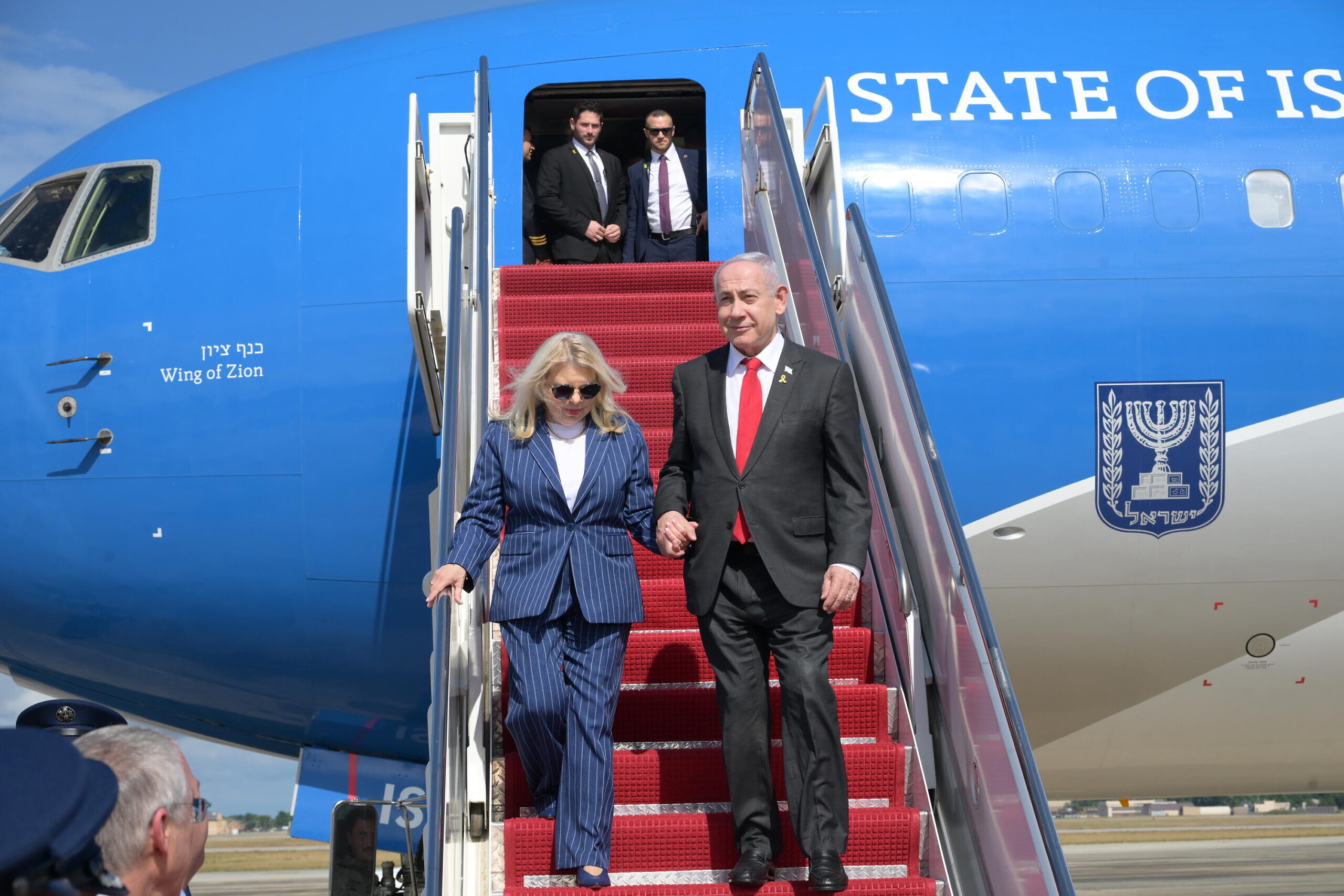
‘It is time to get this deal done’
But Harris also used a phrase oft-repeated by Blinken that while Israel has a right to defend itself, “how it does so matters.”
She pivoted to express her “serious concern about the scale of human suffering in Gaza, including the death of far too many innocent civilians.” Calling what has “happened in Gaza over the last nine months devastating,” Harris expressed concerns about “the dire humanitarian situation there” and “catastrophic levels of acute food insecurity.”
“We cannot look away in the face of these tragedies. We cannot allow ourselves to become numb to the suffering, and I will not be silent,” she pledged.
Harris discussed a two-phased ceasefire agreement, only within the terms of Israeli military withdrawals—first from Gazan population centers and then “from Gaza entirely.”
“I just told Prime Minister Netanyahu, it is time to get this deal done,” Harris said.
Harris made no demands on Hamas, and from her remarks, it was clear by stunning omission that removing the terrorist group from power was not among her goals or priorities.
And while Harris mentioned some of the talking points she delivered to Netanyahu, she did not comment on anything that he told her.
Israeli officials said following the tête-à-tête that the delegation was uncomfortable with the “tone” of Harris’s press statement and worried that her remarks might demonstrate to Hamas and the world that the United States and Israel are not completely aligned in their policies.
On condition of anonymity, a senior Israeli official told reporters following the meeting that “the more our enemies see the complete alignment of positions between Israel and the U.S., the more we increase the chance of securing the release of hostages and decrease the chances of a larger regional war. The more the gap widens, the greater the possibility of a broader conflict.”
Officials worried that Harris’s calls for Israel to “end the war” could lead to a breakdown in the negotiations, as they provide an incentive for Hamas to harden its demands, making a swift deal less likely.
The officials also pushed back on her comments regarding a “dire humanitarian crisis” and “acute food shortage.” The officials noted that detailed evidence had been presented that there was no lack of food for Palestinians in Gaza.
On provisions for Palestinians, sanctions on settlers
During his speech to Congress, Netanyahu detailed Israeli efforts to bring humanitarian aid into the Strip, stating that “Israel has enabled more than 40,000 aid trucks to enter Gaza. That’s half a million tons of food, and that’s more than 3,000 calories for every man, woman and child in Gaza. If there are Palestinians in Gaza who aren’t getting enough food, it’s not because Israel is blocking it, it’s because Hamas is stealing it.”
Officials said often when they arrest terrorists, they find that not only aren’t they starving, “it’s the complete opposite.”
Officials also noted that Harris’s tone was not indicative of the broader Israel-U.S. relationship and speculated that ties with the current administration would not break down with Harris assuming a larger role over the next several months.
Commenting on Netanyahu’s meeting with Biden, which included Blinken and National Security Advisor Jake Sullivan, officials were told that Washington intends to continue sanctioning what they consider “extremist and violent settlers” in Judea and Samaria, in addition to protesters who have attempted to block humanitarian aid from entering the Gaza Strip.
Officials pushed back, saying that there is no comparison between the number of terror attacks committed against Jewish residents by Palestinian jihadis and counter-attacks by Jews. They noted that the ratio of terror attacks to counterattacks is at least 50-1.
American officials also told the Israeli delegation that large 2,000-pound munitions still would not be delivered. The issues of sanctions against Israelis and delivery of weapons were two that Israel hoped to resolve during their meetings.
Despite not getting everything hoped for, one senior official privately told JNS that he was satisfied with how the meetings had gone and how the congressional address was received. The official noted not being blindsided by anything heard from the Americans, saying: “We basically got exactly what we expected.”
Another official said that generally, Israel and the United States are “on a path of cooperation and closing gaps,” while at the same time expressing “that is why Harris’s press conference was so problematic.”

